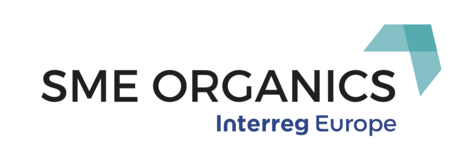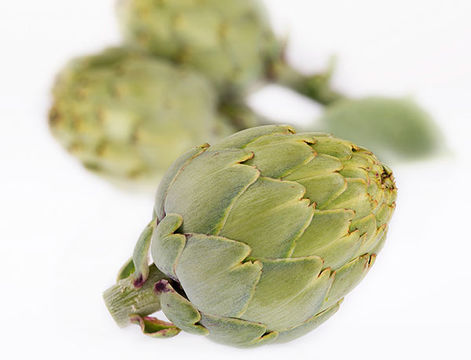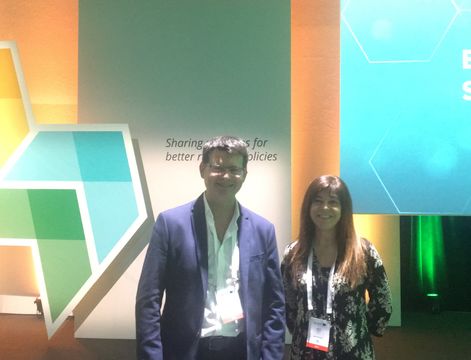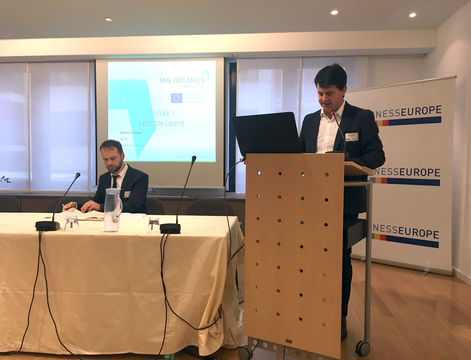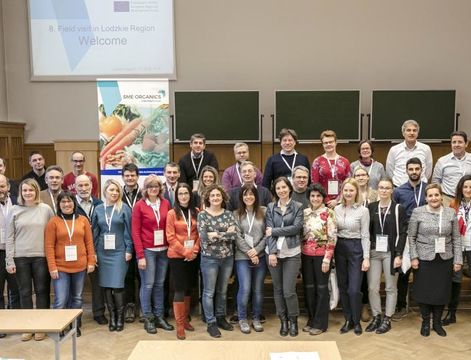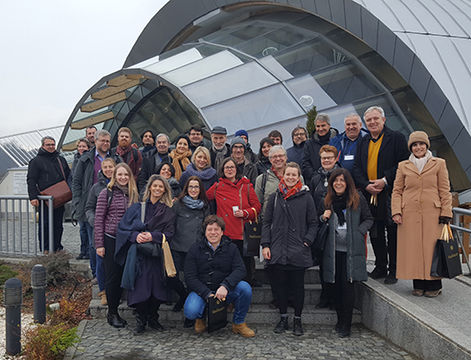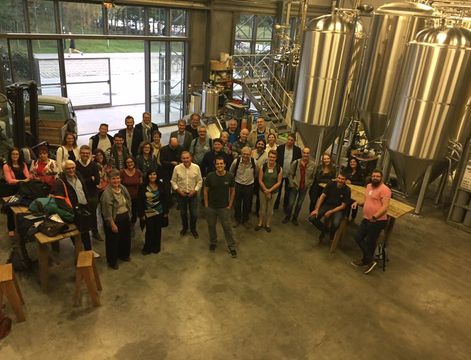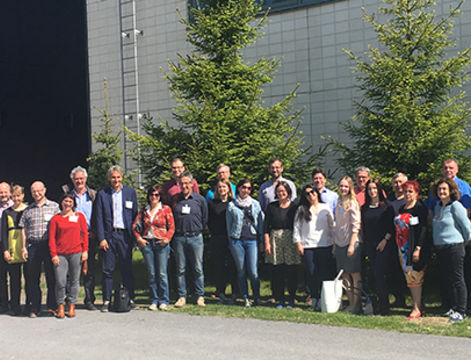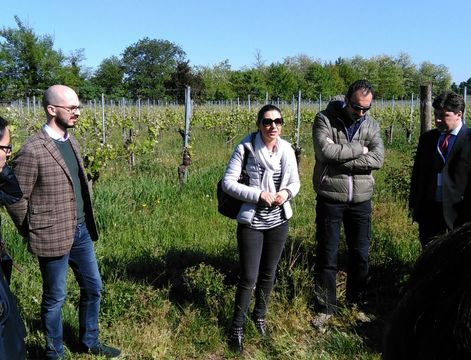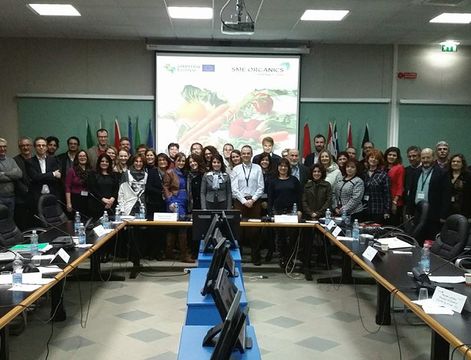The fourth inter-regional visit of SME Organics was held from 19th to 21th of April and was focused on territorial development, local demand, training, traceability/certification and innovation in the organic industry. It was aimed at promoting successful experiences, policies and programs supporting the organic sector in Lombardia. It involved 50 participants, among stakeholders and representatives of the 11 project partners from 7 European Countries (Belgium, Finland, France, Italy, Poland, Romania, and Spain) and Switzerland. During the 3-days programme including workshops, field visits and meetings, producers, distributors of the Lombardy organic chain and representatives of associations, active stakeholders of the project, presented their experiences and good practice examples.
Good Practices by local stakeholders
The opening session on 19th April, started with a presentation of the SME-Organics Method Guide and the presentations of Regional Diagnosis from all regional partners. In the afternoon session we heard the experiences of three local actors:
Public Procurement – Roberto Spigarolo, Unimi – Fellow Researcher -Faculty of Agronomy DiSAA – Agriculture and environmental department of the University of Milan
Member of the governing board and co-founder of AMIQUA – Associazione per il Miglioramento della Qualità della Vita (Association for the Improvement of the quality of life) and a member of the governing board of FederBio. The Faculty of Agronomy of the University of Milan, established in 1935 by the Minister of Public Instruction, is the biggest in Italy and the only one in Lombardy.
Shops representative – Emna Neifar, Bio c’ Bon – General Manager
Emna Neifar has a six years-experience in Strategy consulting and business development and she’s been involved in innovative and disruptive growth projects. She’s now working in the development of Bio C’ Bon brand on the Milanese market that distributes organic certified products, paying attention to quality and taste in order to demonstrate that organic products are naturally good, in addition to being sustainable and healthy.
GDO representative – Vittorio Ramazza, COOP - Quality and Values area Director.
Vittorio Ramazza is in charge for the assessment of the following Private Label productive chains: veal, adult cattle, pork, eggs, milk, farmed fish and for the preparation of product specifications (fresh meat, dairy products, sausages, frozen and baby foods, ice creams). At COOP, he takes care of relations with food and feedstuff industries, breeders, laboratories, certification bodies, and of the preparation and application in industries of the Coop Guideline for the prevention of the food allergens risk.
Visiting competitive organic SMEs - Selected success stories
During the second day of the Lombardy Field Visit, the participants visited two selected success stories of organic SMEs: Cantina San Michele –San Michele Soc. Ag. SS ; Barone Pizzini – Franciacorta 1870, organic winery.
The Cantina San Michele arises on the Monte Netto, a low hill just a few steps away from Brescia, which is both a Regional Agricultural Park and an area of production of the DOC (Registered Designation of Origin) Capriano del Colle Wine. Four wines with Registered Designation of Origin: Netto, a White DOC Capriano del Colle made by 90% of Trebbiano and 10% of Chardonnay; Carme, a Red DOC Capriano del Colle, made by 50% of Marzemino, 40% of Merlot and 10% of Sangiovese; Marzemino, a Marzemino DOC Capriano del Colle, produced 100% from the Marzemino grape variety and 1884, a DOC Capriano del Colle Rosso Riserva.
Barone Pizzini is one of the oldest wineries in the registered appellation area. Founded in 1870, it was the first to produce Franciacorta wines using organically farmed grapes. Organic winemaking is the natural culmination of a quest to achieve the greatest expression of terroir. The estate’s 25 vineyards are scattered in different locations across Franciacorta. They cover a total surface area of 47 hectares. The average elevation of the vines is 200/350 meters a.s.l. And their average age is roughly 15 years. The winery represents a will to reduce environmental impact and to maximize energy savings. The architectural choices function to guarantee the ideal environment for producing wines that respect the environment.
On the second day, between the two field visit mentioned above, all the participants attended a meeting, organized by the Chamber of Commerce of Brescia, with a group of good practices from that area:
Demetra Professione Terra – Wine and others agricultural products
Sempreverde Biogermogli – Organic Sprouts
Lazzari – Vineculture since 1890
Perla del Garda – Wine Companies
Az. Ag. Leonorado – Organic Olive Oil
Clarabella – Social Cooperative Farm
The Fourth Interregional Field Visit of SME Organics Project included in addition 4 parallel workshops that were aiming at discussing and exchanging experiences among peers from stakeholders of the different regions.
